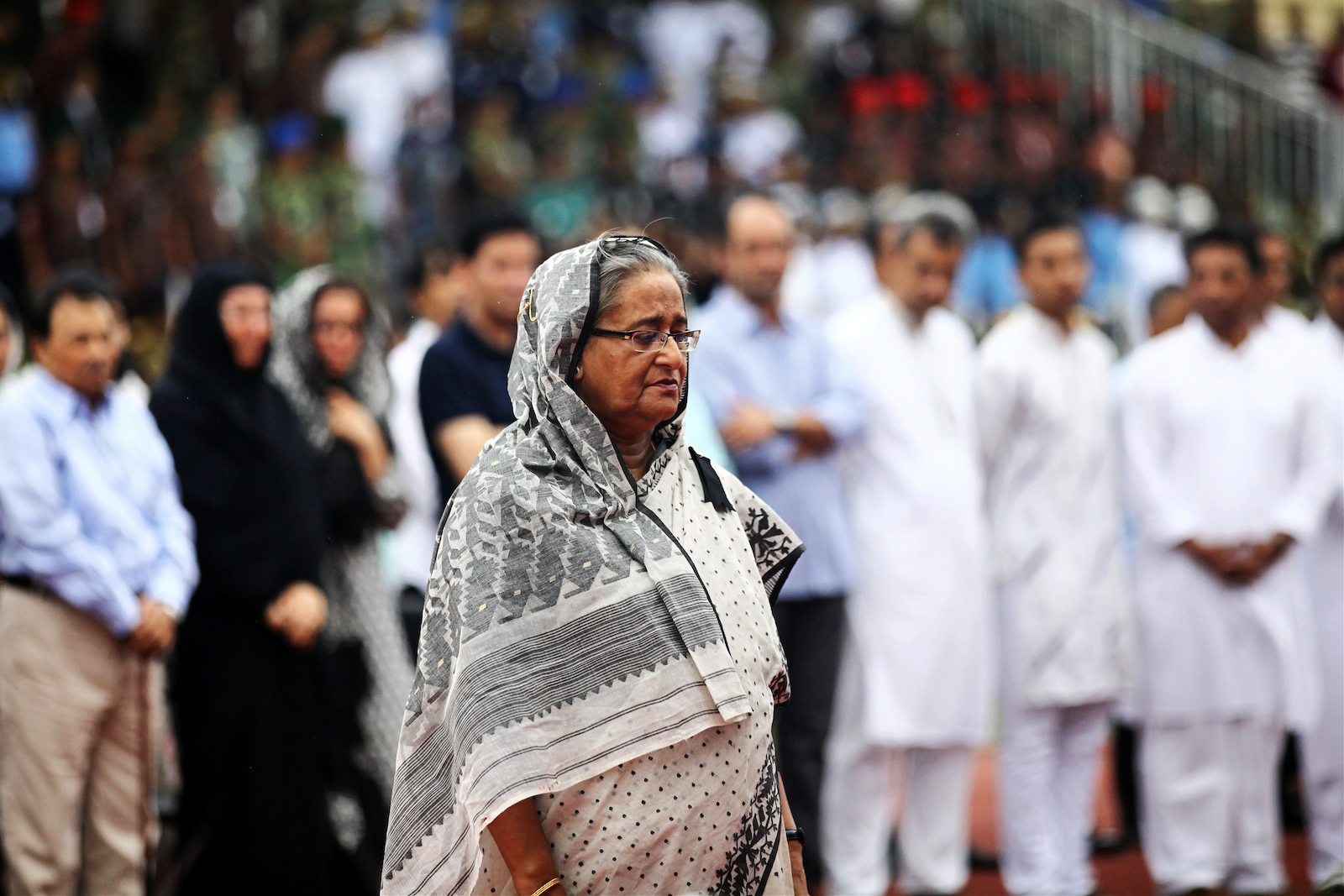
What Elections in Bangladesh Can Teach us About Democracy
Upcoming elections in Bangladesh, slated to take place early next year, have largely been overlooked, but are actually quite consequential. Although Bangladesh is slightly larger than Greece, its population of more than 167 million people makes it one of the most densely populated countries in the world. Bangladesh is poor but growing fast, and the outcome of its elections will project political and economic stability throughout the broader region.
Since the end of military rule in 1991, the government has alternated between Prime Minister Sheikh Hasina’s Awami League, and the Bangladesh Nationalist Party led by former Prime Minister Khaleda Zia. The exception to this trend was in 2007 when a military-backed caretaker government postponed elections amidst a backdrop of political violence. The government then embarked on an anti-corruption campaign, which severely curtailed civil liberties and political expression. Leaders from both major parties were arrested. What was supposed to be a three-month delay in elections turned into a two-year-long strongman rule.
Bangladeshis suffered under the interim government, which imposed emergency powers that curtailed civil liberties, including freedom of the press, freedom of association, and the rule of law.
Bangladesh faces a similar situation today, with calls by the Bangladesh Nationalist Party to install a caretaker government which would oversee the administration of the upcoming elections. The opposition claims that Hasina’s government cannot be trusted and that elections will be partisan.
To be fair, the concerns are real. Corruption has existed in Bangladesh since its inception, and while things have improved slightly, corruption is still pervasive throughout the country. These fears, however legitimate, are insufficient to justify an overhaul of the democratic process when other solutions exist. For example, the international community, particularly the European Union, can double down on observation efforts to ensure that the January elections are free and fair. The alternative of an unelected provisional government will suffer from a fundamental lack of legitimacy. Bangladesh’s past experience with an interim government that descended into dictatorial rule is a stark warning for today.
Such failed experiments are not limited to Bangladesh. Interim governments tend to stay beyond their intended mandate, breeding further instability and even violence. Recent examples include Iraq, where a government was finally formed after thirteen months, and Lebanon, where an interim government led by Najib Mikati remains in power. In Pakistan, a system of short-term caretaker governments was installed to ostensibly ensure neutrality during elections. In practice, however, this approach has been an abject failure, with ineffective rule that often fails to ensure a smooth and peaceful transition of power.
Additionally, caretaker governments have tended to be weak, often reflecting the divisions within their respective societies. Israel is no stranger to these dynamics, with five elections over the course of four years. During this time, the interim government was limited in its authority and paralyzed on everything from the state budget to military planning.
That is not to say that the opposition should be shut out and ignored. In Israel for example, the current government won by a relatively slim margin in terms of the popular vote and then proceeded to embark on an intensely controversial and far-reaching judicial reform program. At the very least, this course of action ignited and inflamed deeply rooted tensions within Israeli society, reaching such an extent that the defense establishment raised concerns over the impact of such reforms on the military and on national security.
Abraham Lincoln encapsulated the crux of democracy in his immortal words advocating for a government “of the people, by the people, (and) for the people.” Exactly one hundred and sixty years later, these words ring true in Bangladesh. What is considered best “for the people” is at the core of legitimate policy debates, but the people, all the people, must have their say.
Societal divisions are not uncommon, in Bangladesh as in Israel. However, the way of healing these wounds is by attempting to breed a broad national consensus, not by ramming through majoritarian (or minoritarian) sweeping changes that lack legitimacy. In this light, any attempt to install a caretaker government in Bangladesh is inherently contradictory to these principles and will set the country back years if not decades.
The decisions Bangladesh makes in the coming year will send a strong signal throughout the region and abroad at a time when democracy is increasingly in peril around the world. The United States and the international community are watching and expect free and fair elections to take place on time as prescribed. It is up to the people of Bangladesh not to let them down.

